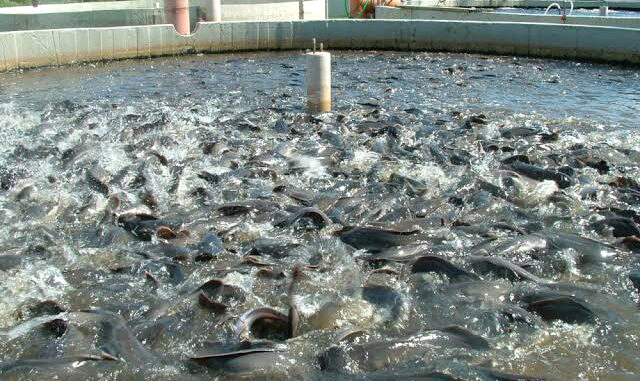WWW.SOLUTIONFANS.COM - MASTER OF ALL EXAM RUNS
Starting a fish farming business can be a rewarding venture for individuals interested in aquaculture and the production of seafood. Fish farming, also known as aquaculture, involves the cultivation of fish in controlled environments such as ponds, tanks, or cages. This article will provide a comprehensive overview of the key steps involved in starting up a fish farming business.

1. Market research
Before diving into fish farming, it is crucial to conduct market research to identify the demand for different fish species in your target market. Explore local restaurants, grocery stores, and fish markets to understand which types of fish are popular and in high demand. Additionally, analyze the competition and pricing to ensure a profitable business model.
2. Business plan
Developing a detailed business plan is essential for any entrepreneurial endeavor. Outline your business objectives, target market, marketing strategies, financial projections, and operational plans. This plan will serve as a roadmap for your fish farming business and will be useful when seeking funding or partnerships.
3. Site selection
Choosing the right location for your fish farm is critical. Look for areas with a reliable water source and suitable environmental conditions for fish growth. Factors to consider include water quality, temperature, access to transportation, and zoning regulations. Whether you opt for pond-based farming, tank-based systems, or cage-based farming, ensure you have enough space to accommodate your fish stock.
4. Species Selection
Selecting the appropriate fish species is crucial for a successful fish farming business. Consider factors such as market demand, growth rate, disease resistance, and environmental suitability. Common fish species for farming include tilapia, catfish, trout, salmon, and carp. Consult with local aquaculture experts or fisheries departments to determine which species are suitable for your region.
5. Equipment and infrastructure
Depending on the type of fish farming system chosen, you will need specific equipment and infrastructure. Ponds require fencing, water supply systems, and aeration equipment, while tank-based systems necessitate tanks, filters, and pumps. Cage-based systems require floating cages, mooring systems, and nets. Research and invest in high-quality equipment to ensure optimal fish health and productivity.
6. Stocking and care
Source healthy fish fingerlings from reputable hatcheries or fish suppliers. Ensure that the fish are disease-free and suitable for your chosen farming system. Implement proper feeding practices and monitor water quality regularly. Depending on the fish species, you may need to provide supplementary nutrition and implement vaccination programs. Regular monitoring of fish health is crucial to prevent and control diseases.
7. Marketing and Sales
Develop a marketing strategy to promote your fish farming business. Build relationships with local restaurants, retailers, and wholesalers to secure sales channels. Consider direct-to-consumer marketing by participating in farmers’ markets or establishing an online presence. Emphasize the quality, freshness, and sustainability of your fish products to attract customers.
8. Regulations and compliance
Familiarize yourself with the legal and regulatory requirements for fish farming in your area. Obtain the necessary permits, licenses, and certifications. Ensure compliance with environmental regulations, health and safety standards, and fish welfare guidelines. Stay updated on industry best practices and technological advancements to improve your operations.
9. Financial management
Maintain thorough financial records to monitor the profitability of your fish farming business. Keep track of expenses, sales, and revenue. Budget for ongoing costs such as fish feed, equipment maintenance, and marketing. Consider working with an accountant or financial advisor to manage your finances effectively.
10. Continuous learning
Stay informed about the latest advancements and research in fish farming. Attend workshops, conferences, and training programs related to aquaculture. Join industry associations or networks to connect with fellow fish farmers and gain insights into best practices. Continuous learning and adaptation are crucial for the long-term success of your fish farming business.
Conclusion
Starting a fish farming business requires careful planning, market research, suitable infrastructure, and adherence to regulations. By selecting the right fish species, implementing best practices, and effectively marketing your products, you can establish a successful and profitable venture in the aquaculture industry.
also don't forget to leave a Reply, we would very MUCH appreciate Your Comments On This Post Below. Thanks!

